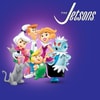

The Energizer Bunny is the marketing icon and mascot of Energizer batteries in North America. It is a pink toy rabbit wearing sunglasses and blue and white striped sandals that beats a bass drum bearing the Energizer logo. It is a parody of the preexistent Duracell Bunny, still seen in Europe and Australia. It has been appearing in television commercials in North America since 1989. The mascot is promoted as being able to continue operating indefinitely, or at least much longer than similar toys using rival brands' batteries. The American Energizer commercials, produced by D.D.B. Chicago Advertising, originally began as a parody of TV advertisements for rival Duracell. In the Duracell ads, a set of battery-powered drum-playing toy rabbits gradually slow to a halt until only the toy powered by a copper-top battery remains active. In Energizer's parody, the Energizer Bunny then enters the screen beating a huge bass drum and swinging a mallet over his head. The criticism was that Duracell compared their batteries with carbon-zinc batteries, and not similar alkaline batteries like Energizer.

Rankings
SEE ALL RANKINGS
People who believe that Energizer Bunny is a high quality fictional character also like (or dislike) these…
Help Topic: What do these scores mean?
Fictional Characters
Films
why?


Science fiction | 1977 | Budget $11M | Box Office $775M
Mark Hamill, Harrison Ford, Carrie Fisher
why?


Historical drama | 1995 | Budget $72M | Box Office $213M
Mel Gibson, Sophie Marceau, Patrick McGoohan
why?


Animated | 1994 | Budget $45M | Box Office $763M
Matthew Broderick, Jeremy Irons, James Earl Jones
Music
TV
why?


SYN89 | Animated | 1962 - 1987 | Ended | 3 Seasons | 75 Episodes
George O'Hanlon, Penny Singleton, Janet Waldo
why?


TELE5GR | Animated | 1964 - 2016 | Ended | 19 Seasons | 227 Episodes
Paul Frees, Rich Little, Dave Barry
why?


FOX | Animated | 1989 - 2025 | Returning Series | 36 Seasons | 793 Episodes
Dan Castellaneta, Julie Kavner, Nancy Cartwright
why?


SYN89 | Animated | 1987 - 2022 | Ended | 3 Seasons | 114 Episodes
Alan Young, Russi Taylor, Chuck McCann
why?


ABC | Animated | 1969 - 1978 | Ended | 3 Seasons | 35 Episodes
Don Messick, Frank Welker, Casey Kasem
why?


Animated | 1993 - 1996 | Ended | 3 Seasons | 54 Episodes
Matt Frewer, John Byner, Dan Castellaneta
why?


ABC | Animated | 1960 - 1966 | Ended | 6 Seasons | 167 Episodes
Alan Reed, Jean Vander Pyl, Mel Blanc
why?


CBS | Animated | 1988 - 1994 | Ended | 7 Seasons | 355 Episodes
Lorenzo Music, Thom Huge, Gregg Berger
why?


YouTube | Kids | 2018 - 2020 | Returning Series | 3 Seasons | 19 Episodes
Casey Kasem, Don Messick, Heather North
Brands & Products
Sports
Games


































































